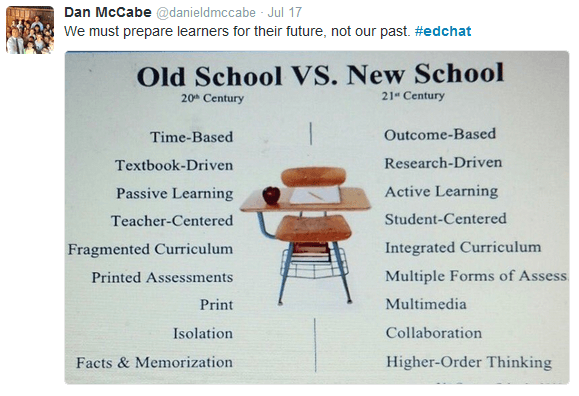
We get asked a lot about why we dislike traditional, “old” schooling.
We imagine having to say this often and in detail: We agree many traditional schools bare doing a great job for many of their students. For many, it may be the most suitable way of learning for them.
How do we talk about the new schools without discrediting the innovations and efforts of teachers and administrators who have given their lives to improve the system? Haven’t many of them created a happy and inclusive learning community for all children?
A quick look at some difference
Dan McCabe, a principal of Nesaquake Middle School in New York, highlights some of the differences here:

Although Mr. Mc Cabe works in a traditional setting, he understands the value of improving the system, thus promotes it. Families and children find new school strategies better than the old especially when they prefer that the child’s learning skills, styles, and preferences are treated as utmost importance. Like Mr. Mc Cabe, educators are aware of this and have been upping their game in this regard. He is not alone but it is an uphill battle – most public school classrooms look a lot like they did a century ago.
Some other things we like about traditional schools:
- Old school strategies such as direct explicit instruction may be effective for some students. Kids with some special needs can also respond to direct instruction pretty well.
- Some old schools have started making improvements by switching from a teacher-centered to learner-centered approach.
- They are sustainable. Unlike many new schools which are still dealing with the chaos of a startup, and occasionally fall apart.
- They give us a reason to make new schools ; )
A harmonious marriage?
Old and new schools of thought can marry harmoniously. For example, learning anatomy as a medical student requires memorization of textbook-based facts but it is equally important to be able to apply this knowledge to the real world. How do they get trained for this? By mixing old school with new school ways: memorizing information and integrating inquiry-based approaches that require higher order thinking processes.
What is your experience like with traditional schools? We’d love to know! Please leave a comment to share your personal experience.
